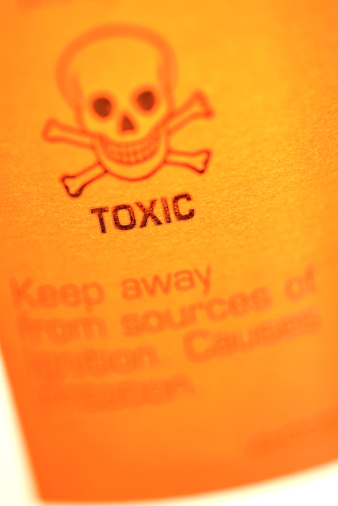Brown Fat: Of Smoke... and Fire?
Brown fat is hot, figuratively and perhaps literally. It is the focus of two recent research papers, one in mice and one in men, and the marquee item in a recent New York Times article, along with other media attention. Brown fat is hot, because it may help keep us warm, burn calories and help keep us thin.
But how hot is it? Proverbs tell us where there's smoke like this, there's fire. But sometimes where there's smoke, there's just smoke -- and a whole lot of hot air!
That was my impression when brown fat first started heating up in 2009. In the April 9 issue of the New England Journal of Medicine that year, three articles (1, 2, 3) and an editorial highlighted the potential, and apparently overlooked, importance of brown fat in human weight regulation.
I was surprised at that time that we were surprised to be learning that brown fat played a role in human temperature regulation and metabolism. I thought that we were taught just that in medical school (mid-1980s in my case). I somehow managed not to get the memo indicating that I didn't know what I thought I knew, and thus failed to be surprised in 2009.
Be that as it may, the New York Times jumped on the brown fat band-wagon then, suggesting that these "new" findings might offer a "cool way to lose weight" -- namely, by using some yet-to-be-discovered wonder drug to reset the human thermostat. Or, in the interim -- turning down the thermostat in our homes.
The heat has been turned up rather than down on the topic, however, with the advent of the two new brown fat studies. One, in mice, published in the prestigious journal Nature, purports to establish the existence of a new hormone, irisin, which is integral -- in exercising mice, at least -- to the process of converting garden-variety white fat into its hottie counterpart, brown fat. Irisin exists in humans as well as in rodents.
The excitement over this is summed up concisely by the authors:
Increased irisin levels in the blood cause an increase in energy expenditure in mice with no changes in movement or food intake. This results in improvements in obesity and glucose homeostasis. Irisin could be therapeutic for human metabolic disease and other disorders that are improved with exercise.
In other words, if irisin does in people just what it does in mice, and if we can develop irisin to give people, it might cause them to burn more calories without needing to exercise. Of course, amphetamines do that already -- and they're not really a terrific idea. But I don't want to get ahead of myself.
The second new study, and in some ways the more provocative of the two if only because the participants were human (six healthy men, to be exact), demonstrated that cold can induce brown fat to burn white fat. Body temperature is maintained with cold exposure by the combustion of the body's stored fuel (i.e., white fat) by the body's newly discovered (sort of) stove (i.e., brown fat). If the body gets even colder, shivering ensues -- and the muscle activity of shivering helps restore a normal temperature. Only when all of these defenses are overcome does hypothermia occur.
The new study was also noteworthy for the magnitude of the observed effect. By making the participants cold up to but not past the point of shivering, metabolic rate was reportedly increased by some 80 percent -- resulting in the expenditure of an extra 250 calories or so over 3 hours. That's not an unimpressive figure -- but a brisk walk for one hour would do the same.
That's why brown fat -- or at least brown fat combined with cold -- is hot.
One opportunity to which this research points is weight management by toughing out the cold. This seems to me a perfectly good and perfectly improbable recommendation. We already have good cause to turn our thermostats down and accept a nominal degree of perennial discomfort: We could save money, and help save the planet. Maybe the incentive of keeping last year's belt relevant this year will get us over the hump of habitual hypothermia -- but I'm thinking not. Being cold all the time is in, a word, uncomfortable. If people were willing to be uncomfortable to control weight, a whole lot more of us would exercise!
The second opportunity -- related in particular to the mouse study -- is to increase the generation of calorie-burning brown fat by exercising. But this is really just another way of saying if you exercise more, you are apt to weigh less -- and almost certain to be healthier. Those arguments haven't carried the day with most members of our population thus far, and it's not obvious that the added bonus of "and you'll have a bit more brown fat, too" will clinch the deal. In essence, this simply clarifies one mechanism by which exercise may do what we already know it does.
Which brings us to the last great opportunity: a new wonder drug. Irisin, or something like it, in a capsule or syringe.
I suppose we might devise a wonder drug for weight control -- and insights into the secret life of brown fat could be how we get there. But I am extremely dubious.
Insights into the secret life of our endocannabinoid system gave us rimonabant, the most promising weight control drug to come along in... just about forever. It causes weight loss, and improves a wide variety of metabolic parameters, too.
But it does so by tinkering with native neural pathways, and unintended consequences abound. For rimonabant, the most salient of those was a dramatic enough increase in the rate of suicide for the drug to be approved and then withdrawn in Europe, and never approved in the first place in the U.S.
I do not think we will find a drug to fix obesity. I invoke Nathaniel Hawthorne to help me make the case.
In Hawthorne's short story, "The Birthmark," a physician is married to a beautiful woman. She is, in fact, so beautiful that by all accounts, her beauty is nearly perfect. But her beauty is only NEARLY perfect. It is marred, ever so slightly, by a small birthmark on her cheek.
The physician hears so many times of his wife's "near perfect" beauty that he becomes seduced by the concept of perfect beauty. He thinks to himself: "After all, I'm a physician! I have the power -- I can do this."
Then the story slowly builds toward an ominous crescendo as the physician prepares an elixir and prepares his wife for a procedure. When at last all is ready, the physician stretches his wife out on a bed -- and administers his elixir to her. And lo and behold! The birthmark disappears, and her beauty is... flawless.
But, alas. Hawthorne was writing for the religious sensibilities of his time, and this story was a moral parable about the unattainable conceit of human perfection. And so this birthmark was no superficial blemish. Rather, it was the mark of the woman's inescapably imperfect humanity. The elixir removed the birthmark from her skin, but traced its remedial effects from her skin to the very core of her -- to her heart -- and rendered her beauty perfect... even as it killed her.
What the hell has this got to do with brown fat? More than you might think.
Like Hawthorne's hapless heroine, we, too, are "marked" by the fundamentals of the human condition. We are all offspring of predecessors who lived in a world where calories were relatively scarce and hard to get, and physical activity constant, arduous and unavoidable.
We now live in a world where physical activity is scarce and hard to get, and calories constant, effortless and unavoidable. Is it any wonder we have epidemic obesity?
But the solutions reside in fixing the havoc we have wrought in our environment and lifestyle, not tinkering with human metabolism. If we pollute the oceans and fish start to die off, a drug that will let fish live on land seems far less plausible than... cleaning up the oceans.
Do you recall the news flashes about obesity genes? Newly-discovered hormones that control hunger? Brown fat is the hot topic du jour.
We have numerous, intricate, overlapping layers of metabolic defense against starvation -- the threat that has stalked the heels of Homo sapiens from time immemorial. We have no native defenses against caloric excess because we never needed those before.
An effort to use a drug -- any drug -- to rework the fundamentals of human metabolism so that we don't turn a surplus of calories into an energy reserve in burgeoning adipose tissue seems to me an enterprise fraught with no less peril than Hawthorne's elixir. I don't believe we will ever devise such a drug -- and if ever we do, I shudder to think what its unintended consequences may be.
I am also tempted to wonder if I am the only one recollecting that obesity is now epidemic in CHILDREN. Are we thinking to use drugs to regulate the thermostats of growing children? Does anyone have even a clue what that might do to growth and development? As a parent, are you at all comfortable with the notion? The defense of doubt... rests.
Like everyone else, I hope the new studies of brown fat provide insights we may eventually exploit to improve the human condition. I am, I confess, a bit less inclined to give the whole topic the cold shoulder than I was in 2009.
But I am cool on the concept of weight control through pharmacology -- whether by beckoning to our brown fat, or by any other mechanism. Obesity is no superficial blemish to be medicated away; it's the birthmark of a people living in a world all too often at odds with the fundamentals of health, and certainly -- and profoundly -- at odds with healthful weight control. I contend, as I always have, that we will win or lose the war of weight control with our feet and our forks -- not pharmacotherapy.
So by all means, stay tuned to the smoke signals about brown fat. But I urge you to keep other irons in the fire.
-fin
For more by David Katz, M.D., click here.
For more on weight loss, click here.
For more on healthy living health news, click here.
Dr. David L. Katz; www.davidkatzmd.com
www.turnthetidefoundation.org
-
Top 10 Ways To Get A Supermodel Figure
It doesnt take fame or a lucrative modeling contract to pull off the t
-
Holiday Diet Tips and Healthy Ideas
We are now fast approaching Holiday Season as well as Christmas vac
-
3 Secrets To Losing Weight Naturally
If you do your research you will find endless places offering advice a
-
Psyched To Weight Loss
It can be very hard and indeed frustrating at times to get your mind p
-
How To Lose More Than 20 Pounds In Less Than A Month
A high number of men and women find it v
-
Of Super Mice And Supermen And The Magic Apples Of Avalon
Recently, a Japanese study showed dramatic results of organ fat loss a
- DON'T MISS
- Sit Down And Shape Up - If You Can Sit You Can Get Fit
- How to Lose Weight After Pregnancy
- Weight Loss Surgery, Are You A Candidate?
- Avoid The Most Common Diet Mistakes That Dieters Make
- Hyaluronic Acid - Newest Celebrity Beauty Secret?
- The Common Mistake that Leads to Weight Gain
- Weight Loss From Eating Fat Burning Foods
- Curb Your Carb Intake
- Weight and Diet: Beware of Stress
- Read This Before You Try Out The Next Weight Loss Program




